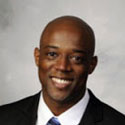Caring for all emergency department patients is important to residents and attendings. However, some of the most critical challenges facing our patient populations cannot be addressed within the confines of an examination room. How does insurance affect care after disposition? How can the emergency department address mental health effectively for individuals who may not have access to adequate outpatient resources? How does innovation interface, or even interfere, with health care delivery? These are just a few of the difficult questions raised in the context of emergency care that may require legislative or regulatory solutions.
Explore This Issue
ACEP Now: Vol 36 – No 05 – May 2017Health care policy plays a critical role in advancing the efficiency and efficacy of emergency care, but lawmakers cannot do it on their own. The doctors on the front lines have firsthand knowledge of the challenges facing the system and which policies may affect positive change. As one of those doctors, I felt a responsibility to get involved in health care policy but wasn’t sure how to do so. In January, I joined the Emergency Medicine Residents’ Association (EMRA) Board of Directors, which spends a great deal of time discussing the issues affecting emergency physicians, residents, and patients. We also attend the ACEP Leadership & Advocacy Conference (LAC) together as a board. This year was my first opportunity to participate in the conference, but it definitely won’t be my last.
The beauty of LAC is that it celebrates accomplishments in emergency medicine while also highlighting, for the benefit of congressional leaders, the challenges of delivering the high-quality care our patients deserve. The diverse selection of speakers this year was incredible, and the leadership represented ran the gamut of experience from Rachel Solnick, MD, a rising PGY2 resident who presented the nuts and bolts of the Affordable Care Act, to established academicians such as Arjun Venkatesh, MD, MBA, MHS, who discussed strategies to contain cost and general practice variation within the emergency department.
As a first-time attendee, I found ACEP’s LAC to be an inspiring and invaluable experience. We learned not only how we as physicians can be effective leaders but also how we can work the governmental levers to address critical social and economic issues that affect our patients. LAC is a tremendous platform to shape policy affecting our practice and also serves as a critical reminder that we must advocate for our patients and our specialty.
 DR. WALKER is a resident physician at the University of Chicago EM section and the member-at-large on the EMRA.
DR. WALKER is a resident physician at the University of Chicago EM section and the member-at-large on the EMRA.





No Responses to “Emergency Medicine Resident Shares Insight on ACEP’s LAC Meeting”